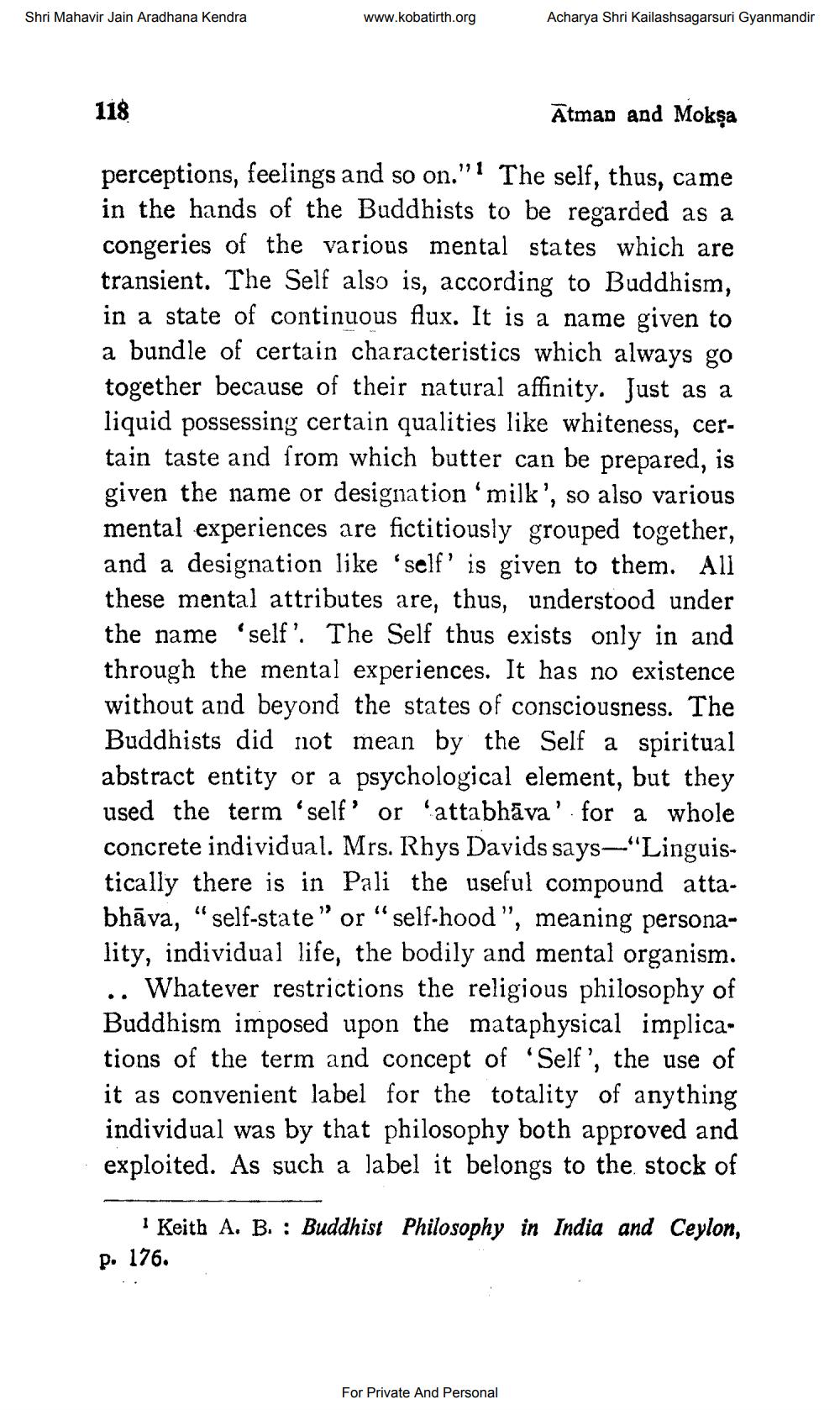________________
Shri Mahavir Jain Aradhana Kendra
www.kobatirth.org
Acharya Shri Kailashsagarsuri Gyanmandir
118
Atman and Moksa
perceptions, feelings and so on."! The self, thus, came in the hands of the Buddhists to be regarded as a congeries of the various mental states which are transient. The Self also is, according to Buddhism, in a state of continuous flux. It is a name given to a bundle of certain characteristics which always go together because of their natural affinity. Just as a liquid possessing certain qualities like whiteness, certain taste and from which butter can be prepared, is given the name or designation 'milk', so also various mental experiences are fictitiously grouped together, and a designation like 'self' is given to them. All these mental attributes are, thus, understood under the name 'self'. The Self thus exists only in and through the mental experiences. It has no existence without and beyond the states of consciousness. The Buddhists did not mean by the Self a spiritual abstract entity or a psychological element, but they used the term 'self' or 'attabhāva' for a whole concrete individual. Mrs. Rhys Davids says-"Linguistically there is in Pali the useful compound attabhāva, “self-state" or "self-hood", meaning personality, individual life, the bodily and mental organism. .. Whatever restrictions the religious philosophy of Buddhism imposed upon the mataphysical implications of the term and concept of 'Self', the use of it as convenient label for the totality of anything individual was by that philosophy both approved and exploited. As such a label it belongs to the stock of
Keith A. B. : Buddhist Philosophy in India and Ceylon, p. 176.
For Private And Personal




